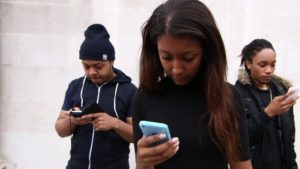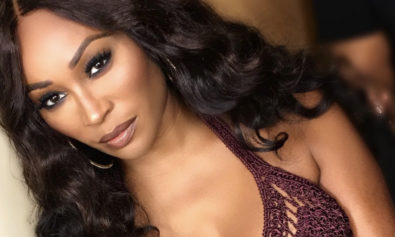
A whopping 74 percent of Blacks said they think the Internet and social media ensure that political campaigns are more transparent. This compares to 69 percent of Asian-Americans, 63 percent of Hispanics and 59 percent of whites. Asked whether the Internet and social media have affected the political influence of minority voters, 55 percent of Blacks said technology has made such voters more influential. Fifty-one percent of Hispanics, 45 percent of whites and 43 percent of Asian-Americans felt the same.
Social media, of course, brought the Black Lives Matter movement to prominence. Today, Twitter continues to draw attention to police misconduct victims. And when political candidates, talk shows hosts and pundits make insensitive comments, Twitter users highlight these remarks for the world to see.
Despite the power that social media has given the electorate, the registered voters polled largely agreed that technology has made political campaigns more negative. Whites (57 percent) were the group most likely to share this view, followed by Asian-Americans (51 percent) and Hispanics (50 percent). While 41 percent of Blacks said the Internet and social media have made campaigns more negative, 34 percent of Blacks said technology had no effect whatsoever on political campaigns.
Voters across the spectrum also told pollsters they believed technology contributed to the spread of misinformation about politics and the election, with 85 percent of whites sharing this view, followed by 83 percent of Asian-Americans, 81 percent of Hispanics and 78 percent of Blacks.
It’s unclear why whites were the group most pessimistic about technology and politics. Some whites clearly resent the rise of social movements such as Black Lives Matter, which is why the hashtag #AllLivesMatter began to gain momentum over the summer. White conservatives on Twitter also make a point to post to the social media network when police are wounded or killed in duty. Their goal appears to be to show that these incidents make the #BlackLivesMatter cause less credible. Finally, white voters tend to skew older and more conservative, giving them a distinct disadvantage over the young people of color who’ve used social media to criticize politicians and police brutality.
Yahoo points out how whites have suffered setbacks over the past 15 years that might collectively make them less optimistic about politics and the nation’s future. As a result, 71 percent of whites think the country is on the wrong track, compared to 41 percent of Blacks, 54 percent of Hispanics and 55 percent of Asian-Americans.
Yahoo referenced the following Princeton University study:
“The death rate among middle-aged whites of all education levels spiked starting around 1999, largely caused by increases in drug and alcohol abuse, drug and alcohol overdoses and suicide…At the same time, the mortality rate among blacks and Hispanics has been dropping, and no other comparable increase in deaths among a demographic group has occurred in any other major industrialized country.”
While whites continue to face challenges, mobile technology may be making traditionally marginalized groups such as African-Americans feel more hopeful about their place in the United States. But how can drawing attention to story after story about anti-Black racism and police misconduct make African-Americans feel empowered?
When Blacks post about an issue on Facebook or Twitter that trends on social media and ultimately makes the national news, they get the sense that their online activism might be able to change society in a way that was off limits to their parents and grandparents.


